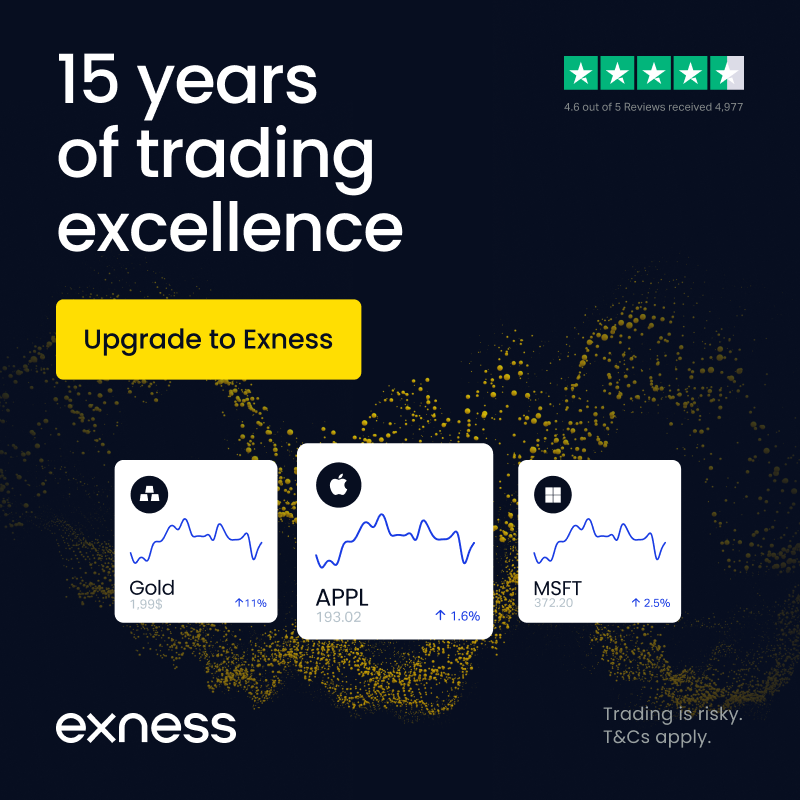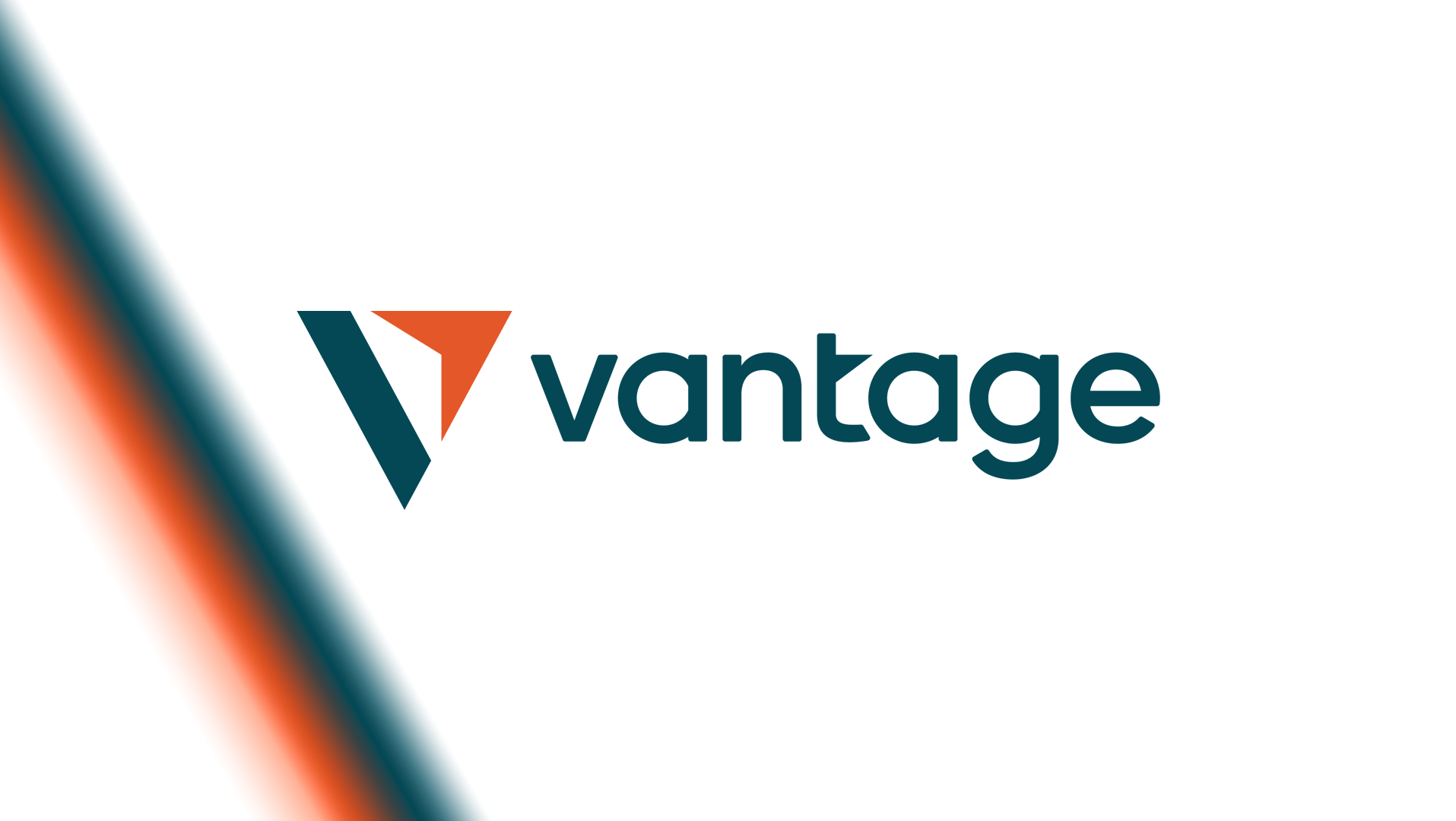
10 minute read
EXNESS vs Vantage: Which is better - Exness new 2025
In the world of online trading, selecting the right broker can determine your success. This leads us to the ongoing debate of EXNESS vs Vantage, where traders often wonder: Which is the better Broker? In this review, we will delve into various aspects of both brokers, comparing their offerings, advantages, and disadvantages, ultimately guiding you in making an informed decision.
EXNESS vs Vantage: An In-Depth Comparison
When it comes to choosing a trading platform, both EXNESS and Vantage have gained considerable attention from traders across the globe. Each broker provides unique features that cater to different trading needs and preferences. To fully appreciate the strengths and weaknesses of each firm, we may examine factors such as fees, customer support, trading platforms, regulatory oversight, and overall user experience.
Exploring these dimensions will unveil insights that can help you navigate the question of EXNESS Comparison Vantage effectively.
Overview of EXNESS
EXNESS broker started its journey in 2008 and has since carved out a niche for itself by offering a robust trading platform. The broker is known for its user-friendly interface, impressive range of account types, and flexible leverage options.

Start Exness Trade : Open Exness Account and Start Trade
Moreover, EXNESS is recognized for its commitment to transparency, providing clients with real-time statistics, which fosters trust among traders.
Overview of Vantage
On the other hand, Vantage was established in 2009 and has quickly emerged as a formidable competitor in the forex market. It prides itself on its competitive spreads, extensive range of trading products, and advanced trading technology.
Vantage also distinguishes itself by providing dedicated services for professional traders while maintaining accessibility for newcomers to the world of trading.
Which is the Better Broker: EXNESS or Vantage?
The question of which broker reigns supreme—EXNESS or Vantage—is subjective and depends largely on individual trading preferences and goals. However, several key factors can be observed in this matchup, helping to unearth the nuances between the two.
Trading Conditions
Trading conditions encompass various elements, including spreads, commissions, and execution speed.
For instance, EXNESS boasts tight spreads starting from 0.0 pips, which means lower costs for traders. Additionally, they offer a commission-free trading experience for most accounts, which significantly enhances profitability.

Start Exness Trade : Open Exness Account and Start Trade
Conversely, Vantage offers competitive spreads but may charge commissions based on different account types. This could potentially result in increased costs for active traders.
Minimum Deposit Requirements
When it comes to getting started, minimum deposit requirements play a crucial role for many traders.
EXNESS allows traders to open accounts with relatively low initial deposits, making it accessible for beginners looking to dip their toes into the trading waters.
In comparison, Vantage, while still offering reasonable minimum deposits, typically requires a bit more capital for certain account tiers, which may dissuade novice traders.
Leverage Options
Leverage is a vital consideration for traders, particularly those looking to maximize their potential returns.
EXNESS provides high leverage options, reaching up to 1:2000 for specific account types, allowing experienced traders to control larger positions.
On the flip side, Vantage also offers flexibility in its leverage options, but this varies depending on the account type selected by the trader.
Reviewing EXNESS and Vantage: Key Differences
To further dissect the differences between EXNESS and Vantage, one must take a closer look at aspects like trading instruments, educational resources, and tools provided to traders.
Range of Trading Instruments
Both brokers claim to offer a diverse array of trading instruments, encompassing forex, commodities, indices, and cryptocurrencies.
EXNESS shines in its coverage of more than 100 currency pairs, along with various CFDs on commodities and indices, appealing to traders seeking diversification.
Vantage, meanwhile, extends its offerings by including additional assets such as stocks and exchange-traded funds (ETFs), catering to traders who are interested in a broader portfolio.
Educational Resources
A knowledgeable trader is often a successful trader.
EXNESS understands this principle well and provides comprehensive educational resources, ranging from webinars, articles, and tutorials to webinars hosted by trading experts.
Vantage also takes education seriously, offering a multitude of guides and resources to help traders enhance their skills. Both brokers empower traders through education, though EXNESS appears to have a slight edge given the breadth of their offerings.
Tools and Features
The availability of trading tools can greatly influence a trader's experience.
EXNESS delivers a variety of tools designed to enhance trading performance, including economic calendars, trading calculators, and market analysis tools.
In contrast, Vantage invests heavily in technology, providing users with advanced charting tools and algorithmic trading capabilities, enhancing the trading experience for tech-savvy individuals.

EXNESS vs Vantage: Fees and Spreads Explained
Understanding the fees and spreads associated with each broker is essential for evaluating the overall cost of trading.
Fee Structures
When analyzing fee structures, clarity is paramount.
EXNESS operates on a mostly commission-free basis, although some account types may incur minor fees under specific conditions.
Conversely, Vantage employs a tiered commission structure where fees vary based on account types. Traders should carefully consider their trading volume and strategies when deciding between these options.
Spread Comparisons
Spreads represent the difference between buying and selling prices, and can impact profitability.
Both brokers offer competitive spreads, but there are distinctions worth noting.
EXNESS typically showcases spreads as low as 0.0 pips on certain accounts, while Vantage presents slightly higher average spreads, particularly on standard accounts.
Trading Platforms: EXNESS vs Vantage Review
A broker's trading platform often determines a trader's entire experience. Let's explore how EXNESS and Vantage stack up against one another in this critical aspect.
Platform Usability
User-friendliness is crucial for traders of all levels.
EXNESS utilizes the renowned MetaTrader 4 (MT4) and MetaTrader 5 (MT5) platforms, which provide intuitive interfaces with customizable features, allowing traders to tailor their setup according to personal preferences.
In contrast, Vantage also embraces the MT4 and MT5 platforms, ensuring familiarity for many traders. Furthermore, Vantage has developed its proprietary mobile application, enhancing accessibility and enabling trades on the go.
Advanced Features
Advanced tools can significantly elevate the trading experience.
When it comes to automated trading, both brokers excel in offering expert advisors (EAs) within the MT4/MT5 frameworks.
However, Vantage arguably goes a step further by integrating advanced charting functionalities and additional tools that cater to algorithmic trading, attracting professional traders looking for sophisticated features.
Mobile Trading Experience
For many traders today, mobile trading plays an integral role in strategy execution.
Both EXNESS and Vantage provide mobile applications that mirror their desktop platforms, ensuring that traders can execute trades seamlessly, regardless of their location.
While both apps are generally well-received, Vantage's mobile app incorporates enhanced features that make it stand out, such as real-time market updates and tailored notifications.
Customer Support: EXNESS or Vantage, Which Excels?
Effective customer support is often a determining factor for traders.
Availability of Support Channels
Both EXNESS and Vantage provide multiple support channels to assist traders.
EXNESS offers live chat, email, and phone support, ensuring that clients can reach out via their preferred method. Their responsive team is known for resolving queries promptly, which is reassuring for traders.
Similarly, Vantage offers a solid support system, providing live chat options along with email and phone support. However, some traders have noted that response times can vary, particularly during peak hours.
Support Quality and Expertise
The quality of customer service can greatly affect the overall trading experience.
EXNESS garners positive reviews for its knowledgeable representatives, who not only assist with technical issues but also guide traders through the platform's offerings.
Vantage also receives praise for its customer support but has received criticism regarding wait times during busy periods. This could impact traders in need of immediate assistance.
Regulation and Safety: EXNESS vs Vantage Insights
Safety and regulation should remain at the forefront of any trader's decision-making process.
Regulatory Oversight
Both EXNESS and Vantage hold licenses from reputable financial authorities, instilling a sense of trust among traders.
EXNESS is regulated by entities such as the Financial Conduct Authority (FCA) and the Cyprus Securities and Exchange Commission (CySEC), ensuring that it adheres to strict guidelines regarding client fund security.
Meanwhile, Vantage holds licenses from the Australian Securities and Investments Commission (ASIC) and the Financial Services Authority (FSA) in Saint Vincent and the Grenadines, reinforcing its credibility in the industry.
Client Fund Security
Security of client funds is of utmost importance in online trading.
EXNESS separates client funds from company funds and places them in top-tier banks, securing traders’ investments.
Vantage similarly emphasizes the safeguarding of client funds through segregated accounts, ensuring that traders’ money is protected.
User Experience: EXNESS vs Vantage Review
User experience encapsulates everything from the registration process to the ease of navigating the trading platform.
Account Registration Process
A seamless account registration process enhances user experience.
EXNESS offers a straightforward sign-up procedure, requiring minimal documentation for basic accounts. This efficiency appeals particularly to new traders.
On the other hand, Vantage also simplifies the registration process but may require more detailed information based on the account type chosen, leading to longer processing times in some cases.
Ease of Navigation
Navigating the platform should feel intuitive and effortless.
EXNESS excels in providing a clean interface that allows traders to access different features without feeling overwhelmed.
Vantage’s platform, while functional, can feel cluttered at times due to the sheer number of tools and resources available, which might deter novice traders.
Account Types: Comparing EXNESS and Vantage
When comparing EXNESS and Vantage, examining the range of account types available is crucial to understanding which broker might suit you best.
Variety of Account Types
EXNESS offers a wide array of account types, catering to varying trading styles. From cent accounts suitable for beginners to professional accounts targeting seasoned traders, there is something for everyone.
Vantage similarly provides different account types, including Standard and RAW ECN accounts, which attract both novice and expert traders alike.
Features and Benefits of Each Account Type
Examining the features and benefits associated with different account types reveals insights into what each broker offers their clients.
EXNESS provides significant advantages such as ultra-low spreads and a wider range of leverage options across its various accounts.
Vantage, while competitive, tends to focus on its RAW ECN accounts, offering lower spreads at the expense of commissions. This dynamic may favor active traders but requires careful consideration for those less frequent in their trading activities.
Final Verdict: EXNESS vs Vantage Broker Review
In concluding our analysis of EXNESS vs Vantage, we find that both brokers offer a wealth of features designed to support traders.
Strengths of EXNESS
EXNESS stands out for its transparency, low fees, and robust educational resources, making it an excellent choice for beginners and casual traders. Its user-friendly platform and reliable customer support further enhance its reputation.
Strengths of Vantage
Conversely, Vantage appeals to those seeking advanced trading technology and a broader range of asset classes. Its competitive spreads and features designed for professional traders position it well in the market.
Ultimately, the decision between EXNESS and Vantage boils down to individual preferences, trading styles, and financial goals.
Conclusion
As the trading landscape continues to evolve, so too do the options available to traders. Our exploration of EXNESS vs Vantage has highlighted the distinctive features of each broker, emphasizing the importance of aligning your trading needs with the right platform.
Whether you're drawn to the user-friendly approach of EXNESS or the technological advancements offered by Vantage, understanding the nuances of each will empower you to make informed decisions in your trading journey.
See more:










